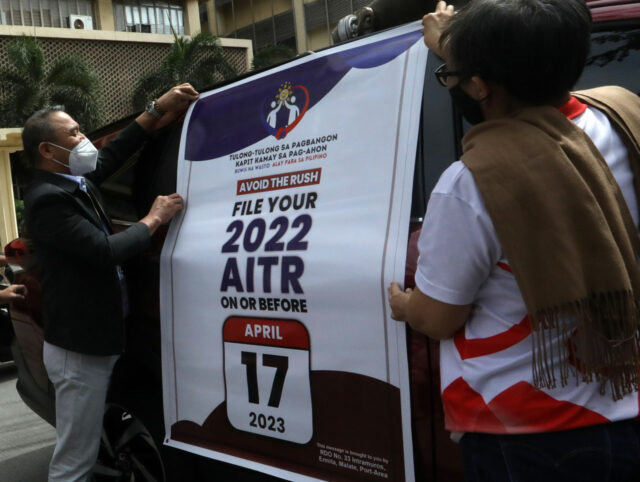Government losing P500 billion to tax evasion — BIR

THE GOVERNMENT loses around P500 billion annually to tax evasion, according to a top Bureau of Internal Revenue (BIR) official.
“There is a lot, especially if we include those involved in illicit trade. In cigarettes alone, there’s around P100 billion,” BIR Commissioner Romeo D. Lumagui, Jr. said, when asked about revenue losses from tax evasion.
“Leakages aren’t part of that yet, like petroleum or vape products that aren’t registered, as well as fake receipts. I think it won’t go below P500 billion if you add everything up,” he added.
Mr. Lumagui said the BIR will have an easier time achieving its collection targets if it addresses tax evasion.
Earlier this month, the BIR filed 74 tax evasion complaints worth P3.5 billion against several companies.
“We will tailor efforts to improve digital services so businesses will leave the shadow economy and join the tax net. We will now focus on enforcement activities against tax evaders, put emphasis on tapping uncollected taxes through illegal activities,” Mr. Lumagui said.
The BIR is currently monitoring and investigating a number of suspected tax evaders.
“The most important right now is the selling of fake receipts and we know who (they are). We are investigating so we can file a case against those involved,” Mr. Lumagui said.
The BIR is targeting to collect P2.6 trillion in revenues this year.
“With all our activities and efforts we are making, we will be able to achieve the tax collection target,” he said.
In 2022, the agency collected a total of P2.34 trillion, surpassing its P2.1-trillion target.
Meanwhile, Mr. Lumagui said the agency will also review its policies after the Supreme Court declared void its regulations that require firms to disclose the personal information of investors.
“We must respect the privacy (of these investors) but when it comes to the correct amount of taxes, the BIR has auditing power. There is still a need to pay taxes and the compliance of these businesses needs to be monitored. When it comes to determining the correct amount of taxes, we can investigate that,” he added.
The Supreme Court declared that the BIR Revenue Regulations No. 1-2014 and Revenue Memorandum Circular (RMC) No. 5-2014 “void for being unconstitutional” as it violated the right to privacy.
The regulations require businesses to disclose investor information such as addresses, tax identification number (TIN), and birthdays, among others.
“The Court holds that the collection of information pursuant to the questioned regulations is not necessary for the BIR to carry out its functions. To reiterate, there was no showing that there was a problem or inefficacy with the system prior to the issuance of the questioned regulations,” according to the ruling.
“While creating a tax database may be considered as part of the BIR’s function of tax collection, it would still be futile to state that the information sought are necessary for the BIR to effectively and efficiently perform its statutorily mandated functions,” it added. — Luisa Maria Jacinta C. Jocson











